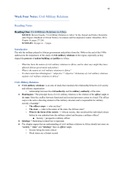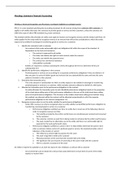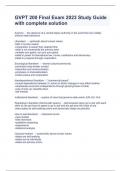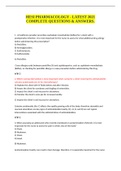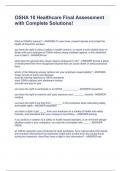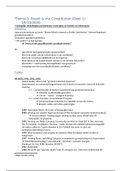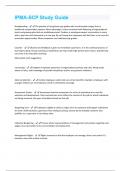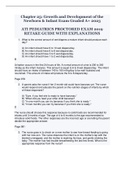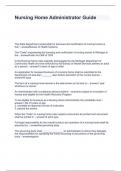Samenvatting
Politics: Africa Summary of Week 4 Readings + Optional reading
- Vak
- Politics: Africa
- Instelling
- Universiteit Leiden (UL)
Browne Onuoha, “Civil-Military Relations in Africa” In Ojo, Samuel and Falola, Oloruntoba (eds) Palgrave Handbook of African Politics, Governance and Development (London: Macmillan, 2018) Chapter 16, pages 277-286. Optional reading: Very helpful for exam as content here was used in the lectu...
[Meer zien]
